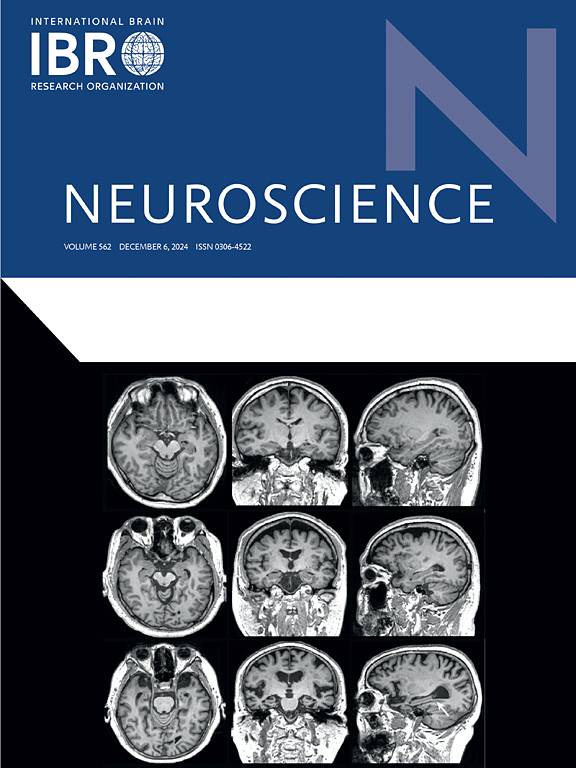肠神经系统功能障碍是中枢神经系统疾病的驱动因素:神经系统疾病中被遗忘的大脑
IF 2.9
3区 医学
Q2 NEUROSCIENCES
引用次数: 0
摘要
肠神经系统(ENS)通常被称为“第二大脑”,是胃肠道内神经元和神经胶质细胞的复杂网络。它在通过肠脑轴(GBA)与中枢神经系统(CNS)保持密切联系的同时自主运作。ENS功能障碍在神经退行性和神经发育障碍中起着至关重要的作用,包括帕金森病、阿尔茨海默病和自闭症谱系障碍。神经传递改变、肠道微生物群失衡和神经炎症等破坏有助于疾病的发病机制。GBA通过迷走神经、肠道激素、免疫信号和微生物代谢物实现双向交流,将肠道健康与神经功能联系起来。ENS失调与肠易激综合征(IBS)和炎症性肠病(IBD)等疾病有关,通过神经炎症和屏障完整性受损影响全身和中枢神经系统病理。本文综述了针对ENS功能障碍的新兴治疗策略,包括益生元、益生菌、粪便微生物群移植(FMT)和迷走神经刺激,这些方法提供了调节肠-脑相互作用的新方法。与以往将ENS视为被动疾病标志物的观点不同,本综述将其重新定位为神经系统疾病的主动驱动因素。通过整合ENS生物标志物、治疗靶点和GBA调节方面的进展,本文提出了一种范式转变,强调ENS功能障碍是神经退行性疾病和神经发育障碍的基本机制。这一观点为创新诊断、个性化肠道靶向治疗以及更深入地了解ENS在大脑健康和疾病中的作用铺平了道路。本文章由计算机程序翻译,如有差异,请以英文原文为准。

Enteric nervous system dysfunction as a driver of central nervous system disorders: The Forgotten brain in neurological disease
The Enteric Nervous System (ENS), often called the “second brain,” is a complex network of neurons and glial cells within the gastrointestinal (GI) tract. It functions autonomously while maintaining close communication with the central nervous system (CNS) via the gut-brain axis (GBA). ENS dysfunction plays a crucial role in neurodegenerative and neurodevelopmental disorders, including Parkinson’s disease, Alzheimer’s disease, and autism spectrum disorder. Disruptions such as altered neurotransmission, gut microbiota imbalance, and neuroinflammation contribute to disease pathogenesis. The GBA enables bidirectional communication through the vagus nerve, gut hormones, immune signaling, and microbial metabolites, linking gut health to neurological function. ENS dysregulation is implicated in conditions like irritable bowel syndrome (IBS) and inflammatory bowel disease (IBD), influencing systemic and CNS pathology through neuroinflammation and impaired barrier integrity. This review highlights emerging therapeutic strategies targeting ENS dysfunction, including prebiotics, probiotics, fecal microbiota transplantation (FMT), and vagus nerve stimulation, which offer novel ways to modulate gut-brain interactions. Unlike previous perspectives that view the ENS as a passive disease marker, this review repositions it as an active driver of neurological disorders. By integrating advances in ENS biomarkers, therapeutic targets, and GBA modulation, this article presents a paradigm shift—emphasizing ENS dysfunction as a fundamental mechanism in neurodegeneration and neurodevelopmental disorders. This perspective paves the way for innovative diagnostics, personalized gut-targeted therapies, and a deeper understanding of the ENS’s role in brain health and disease.
求助全文
通过发布文献求助,成功后即可免费获取论文全文。
去求助
来源期刊

Neuroscience
医学-神经科学
CiteScore
6.20
自引率
0.00%
发文量
394
审稿时长
52 days
期刊介绍:
Neuroscience publishes papers describing the results of original research on any aspect of the scientific study of the nervous system. Any paper, however short, will be considered for publication provided that it reports significant, new and carefully confirmed findings with full experimental details.
 求助内容:
求助内容: 应助结果提醒方式:
应助结果提醒方式:


